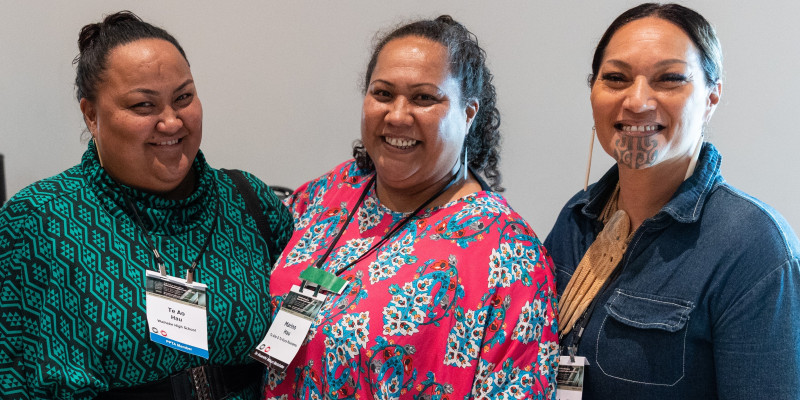
Greater support needed for aspiring secondary school wāhine Māori leaders
New research recommends a range of initiatives to support aspiring wāhine Māori leaders in secondary schools.
Robust, tailored mentoring programmes, innovative ‘apprenticeship’ models and more professional development opportunities are needed to support wāhine Māori who are or want to be school leaders, a new report has found.
Accurate and comprehensive picture
The report, Me aro ki te hā o Hine-ahu-one Wāhine Māori in Leadership, is based on research carried out by Te Wāhanga – the NZ Council for Education Research, for PPTA Te Wehengarua.*
Te Aomihia Taua-Glassie, PPTA Te Wehengarua Māori vice president and leader of learning -Te Reo Māori at a Northland high school, says PPTA Te Wehengarua identified support for wāhine Māori leaders and aspiring leaders as a key priority. “We commissioned this research to help us get an accurate and comprehensive picture of the experiences of current and aspiring wāhine Maori leaders in our secondary schools and how they could be better supported.
Wonderful potential
“As a wāhine Māori in a formal leadership position, the research findings resonate so strongly with me on various levels. While on one hand it’s reassuring to know that I am not alone in terms of what I experience as a wāhine Māori leader, on the other hand the findings show that our rangatahi are being deprived of many wonderful potential wāhine Māori leaders because the support is lacking.”
Lack of support was one of several barriers to leadership for wāhine Māori idenitified in the report. ‘The barriers were multi-layered and extensive’, the report states. Most commonly perceived barriers were concerns about work-life balance, feeling overworked and lack of confidence. Other barriers wāhine Māori experienced were not being able to see people like themselves in leadership, and having to battle an education system that was not set up to benefit or value Māori.
Setting a clear direction
Te Aomihia Taua-Glassie says the report provides clear evidence of what the issues are and and sets a clear direction for supporting wāhine Māori to become leaders in secondary schools. Inititatives it recommends include strong, bespoke mentoring programmes and support networks, apprenticeships for aspiring leaders, and professional development wānanga, courses and hui.
“I really hope schools, principals, and organisations such as the Minsitry of Education and the Teaching Council will join us and ensure we all do better by our wāhine Māori leaders and aspiring leaders. More amazing wāhine Māori leaders in our secondary schools are the role models our rangatahi need. I urge people to join us in making this happen.”
*For the research, more than 340 wāhine Māori completed a survey and 24 participants were interviewed. More than 90 percent of participants work in English-medium secondary schools and just under 10 percent work in kaupapa Māori secondary schools.
Key findings
Diverse roles and responsibilities: Wāhine Māori hold a wide range of roles within their schools and kura. The wāhine Māori we interviewed were employed in a range of formal leadership positions, including one principal, four deputy principals, 15 middle leaders, three teachers, and one administrative staff member. In the survey results, 220 of the 348 wāhine Māori who responded held a formal leadership role.
Cultural taxation: Beyond their formal, remunerated positions, most wāhine Māori in our study undertook additional roles and responsibilities. These roles encompassed cultural and pastoral responsibilities, unpaid commitments, and additional duties essential to the culture, well-being, and success of students and communities.
Distinctive leadership qualities: Leadership through the lens of wāhine Māori emphasised their distinct attributes and strengths. Māori leadership was characterised by unique qualities, emphasising collaborative and inclusive models over hierarchical approaches. Wāhine also emphasised the importance of recognising and supporting their leadership roles and contributions within Māori and non-Māori contexts.
Importance of mentoring and support: Mentoring and support are pivotal in nurturing the leadership aspirations of wāhine Māori. Positive role models, mentors, and networks were crucial to their success. Whānau also played a key role in providing practical, emotional, and moral support to wāhine Māori who are in leadership.
